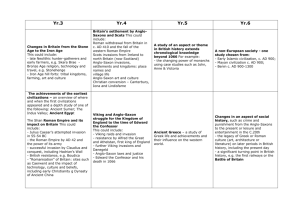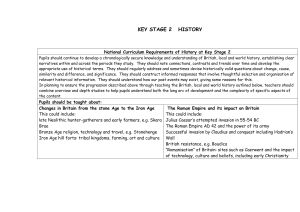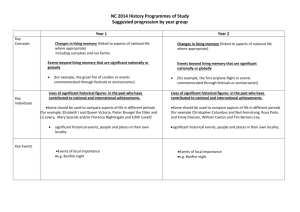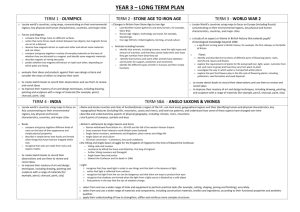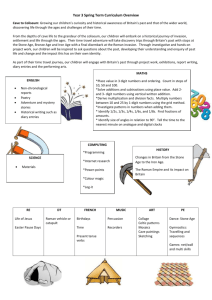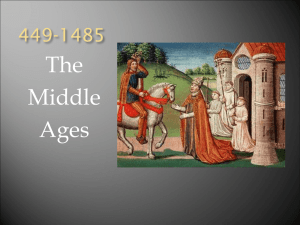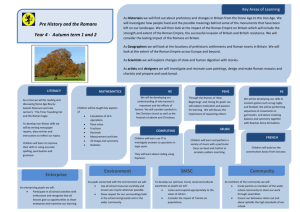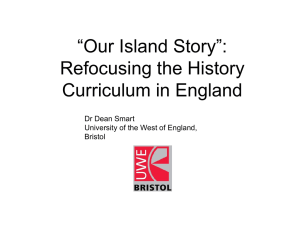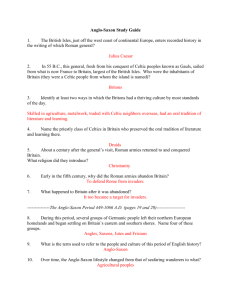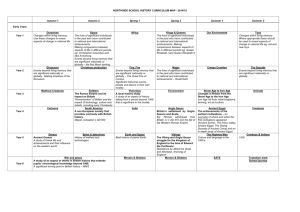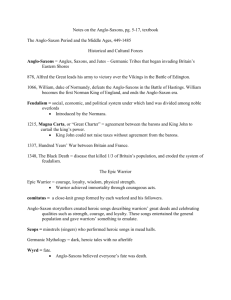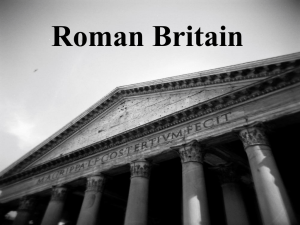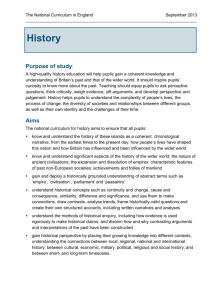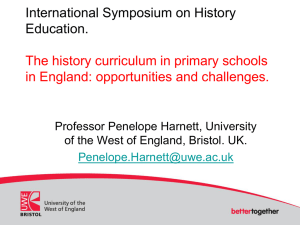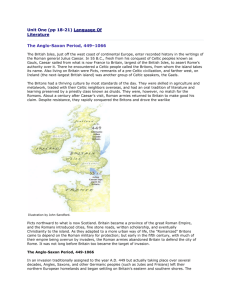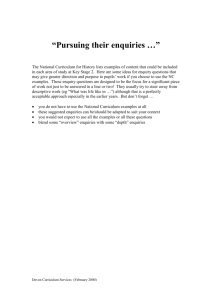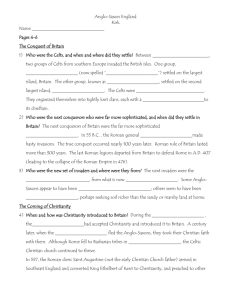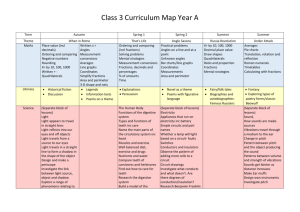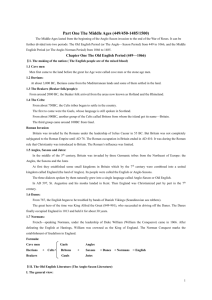History Overview
advertisement
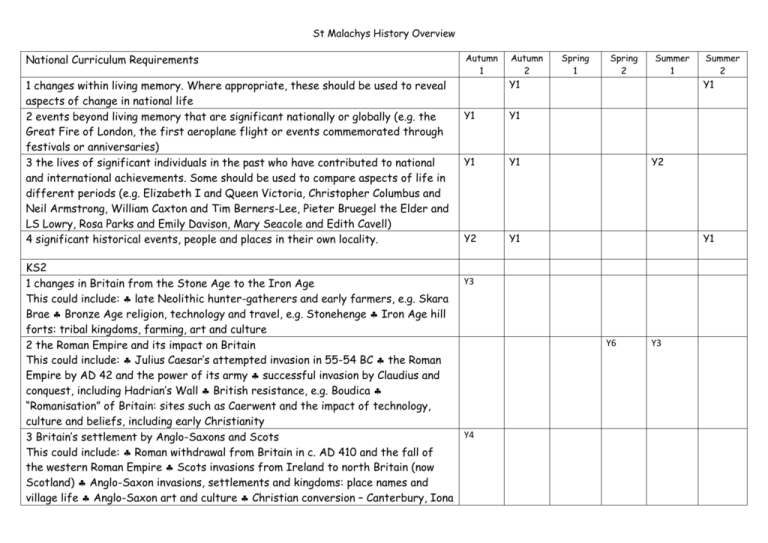
St Malachys History Overview National Curriculum Requirements 1 changes within living memory. Where appropriate, these should be used to reveal aspects of change in national life 2 events beyond living memory that are significant nationally or globally (e.g. the Great Fire of London, the first aeroplane flight or events commemorated through festivals or anniversaries) 3 the lives of significant individuals in the past who have contributed to national and international achievements. Some should be used to compare aspects of life in different periods (e.g. Elizabeth I and Queen Victoria, Christopher Columbus and Neil Armstrong, William Caxton and Tim Berners-Lee, Pieter Bruegel the Elder and LS Lowry, Rosa Parks and Emily Davison, Mary Seacole and Edith Cavell) 4 significant historical events, people and places in their own locality. Autumn 1 Autumn 2 Spring 1 Spring 2 Summer 1 Y1 Y1 Y1 Y1 Y1 Y2 Y1 KS2 Y3 1 changes in Britain from the Stone Age to the Iron Age This could include: late Neolithic hunter-gatherers and early farmers, e.g. Skara Brae Bronze Age religion, technology and travel, e.g. Stonehenge Iron Age hill forts: tribal kingdoms, farming, art and culture 2 the Roman Empire and its impact on Britain This could include: Julius Caesar’s attempted invasion in 55-54 BC the Roman Empire by AD 42 and the power of its army successful invasion by Claudius and conquest, including Hadrian’s Wall British resistance, e.g. Boudica “Romanisation” of Britain: sites such as Caerwent and the impact of technology, culture and beliefs, including early Christianity Y4 3 Britain’s settlement by Anglo-Saxons and Scots This could include: Roman withdrawal from Britain in c. AD 410 and the fall of the western Roman Empire Scots invasions from Ireland to north Britain (now Scotland) Anglo-Saxon invasions, settlements and kingdoms: place names and village life Anglo-Saxon art and culture Christian conversion – Canterbury, Iona Summer 2 Y1 Y2 Y1 Y6 Y3 and Lindisfarne 4 the Viking and Anglo-Saxon struggle for the Kingdom of England to the time of Edward the Confessor This could include: Viking raids and invasion resistance by Alfred the Great and Athelstan, first king of England further Viking invasions and Danegeld AngloSaxon laws and justice Edward the Confessor and his death in 1066 5 a local history study For example: a depth study linked to one of the British areas of study listed above a study over time tracing how several aspects national history are reflected in the locality (this can go beyond 1066) a study of an aspect of history or a site dating from a period beyond 1066 that is significant in the locality. 6 a study of an aspect or theme in British history that extends pupils’ chronological knowledge beyond 1066 For example: the changing power of monarchs using case studies such as John, Anne and Victoria 208 changes in an aspect of social history, such as crime and punishment from the Anglo-Saxons to the present or leisure and entertainment in the 20th Century the legacy of Greek or Roman culture (art, architecture or literature) on later periods in British history, including the present day a significant turning point in British history, e.g. the first railways or the Battle of Britain 7 the achievements of the earliest civilizations – an overview of where and when the first civilizations appeared and a depth study of one of the following: Ancient Sumer; The Indus Valley; Ancient Egypt; The Shang Dynasty of Ancient China 8 Ancient Greece – a study of Greek life and achievements and their influence on the western world 9 a non-European society that provides contrasts with British history – one study chosen from: early Islamic civilization, including a study of Baghdad c. AD 900; Mayan civilization c. AD 900; Benin (West Africa) c. AD 900-1300. Y4 Y3 Y4 Y6 Y6 Y6 Y5 Y5
